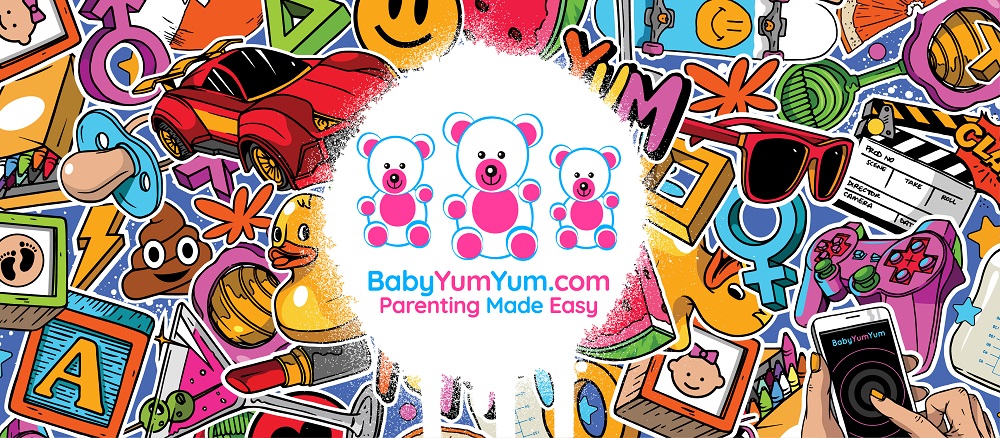If you've heard the term neurodiversity but aren't sure what it means, you're not alone. For many parents, understanding neurodiversity is the first step in offering better support to their children. It includes conditions like ADHD, autism, dyslexia and more, without labelling them as defects. It’s about difference, not disorder.
Table of Contents
Many parents are not familiar with the word neurodiversity, particularly in South Africa. It’s more than just jargon; it’s a mindset that can transform how a child with autism, ADHD, dyslexia or other conditions experiences life. Understanding neurodiversity helps families move beyond viewing brain differences as deficits and towards recognising them as natural variations in how people think, learn, and feel. This guide unpacks the concept, explores why it’s becoming so urgent right now, and offers seven practical insights for parents navigating neurodiversity.
1. Neurodiversity Means That Brain Differences Are Normal
The essence of neurodiversity is simple: just as biodiversity recognises variety in nature, neurodiversity recognises variety in human brains. Not all nervous systems work the same and that’s okay. The University of Johannesburg’s Centre for Neurodiversity emphasises this, offering training, psychoeducation and teacher support to help schools value different learning profiles. Their work reflects a shift in South Africa from seeing conditions like autism and ADHD as something to fix toward seeing them as part of human diversity.
2. It Includes Many Conditions and Not Just Autism
Neurodiversity isn’t limited to autism. It’s an umbrella concept encompassing:
- Autism and Asperger’s
- ADHD
- Dyslexia and dyscalculia
- Dyspraxia / DCD
- Other cognitive and learning differences
ALSO READ: Neurodiversity and Its Impact on Youth Today: 10 Empowering Ways to Support Your Child
As Psychology Today Canada explains:
A neurodivergent person has a brain that functions differently than a ‘normal’ brain… autism, ADHD, dyslexia… are often included under this umbrella.
3. Some Children Face a Tougher Road in South Africa
In South Africa, many families raising neurodivergent children face significant challenges accessing early intervention, psychiatric assessments, and inclusive school support. Drawing from her clinical experience, Dr Alicia Porter, who is a Specialist Child and Adolescent Psychiatrist, focuses on how fragmented mental health services and limited public awareness often delay diagnosis and treatment. These systemic gaps, coupled with stigma, leave many parents struggling to find appropriate care and educational environments, even in well-resourced urban areas.
4. Neurodivergence Comes with Strengths Not Just Challenges
One of the most powerful aspects of the neurodiversity movement is its focus on strengths, not deficits. As Webber Wentzel’s article on embracing neurodiversity observes:
Neurodiversity advocates that society would benefit from recognising and developing the strengths associated with certain neurodevelopmental disorders.
Whether it’s creativity, pattern recognition, hyperfocus or empathy, many neurodivergent individuals offer unique abilities that enrich families, communities and workplaces.
5. A Shift from “Fix it” to “Support and Accommodate”
Traditional models assumed neurodivergences were medical problems needing correction. Neurodiversity reframes this. Instead of masking or forcing compliance with neurotypical norms, families and schools are encouraged to support neurodivergent children through:
- Environmental adjustments, such as quieter sensory settings
- Communication adaptations, like visuals or flexible scheduling
- Strength-based education, which builds on a child’s interests and abilities
The Centre for Neurodiversity in South Africa emphasises this approach, supporting family psychoeducation and sensory‑based interventions.
6. Positive Neurodiverse Identity Supports Mental Well-Being
Self-view matters. Research shows that children with neurodivergence fare much better when they see their traits as part of who they are, not as flaws. A survey cited in Wikipedia found neurodivergent youth holding a “difference” view reported higher confidence, career ambition and self‑esteem compared to those holding a “deficit” view. International advocates like Temple Grandin frequently remind people:
“Different, not less.”
“The world needs all kinds of minds.”
7. Raising Awareness Boosts Inclusion In Schools, Homes and Workplaces
Understanding neurodiversity helps not just the child but the entire environment adapt. In South Africa, centres such as Spectrum Centre and Neurodiversity Centre KZN offer diagnosis, support therapy and community workshops. In workplaces, SA-based firms are beginning to value neurodiverse talent. According to a South African neurodiversity workplace report:
Neurodivergent employees bring pattern recognition, creativity, and focus, benefits that employers can harness with proper support.
Even globally, programs like JPMorgan’s Autism at Work have shown neurodiverse teams achieving higher accuracy and productivity, a pattern echoed in local industries.
ALSO READ: The Challenges Neurodivergent Children Face in Mainstream Classrooms: A Look at ADHD and ASD
Practical Tips for Parents Embracing Neurodiversity
Early Identification and Assessment
If you suspect differences in attention, learning, sensory processing or social interaction, consult a registered clinical psychologist or paediatrician familiar with the fifth edition of the Diagnostic and Statistical Manual of Mental Disorders (DSM‑5) guidelines. In South Africa, clinics like the Centre for Neurodiversity offer assessments and family support.
Build a Strength-Based Profile
Notice your child’s interests, patterns of energy and ways of problem-solving; these clues help shape a supportive educational or home routine.
Advocate for School Support
Ensure your child’s school understands neurodiversity. Education initiatives, private institutions or specialised schools may be willing to customise support plans or sensory spaces.
Use Positive Language
Shift away from deficit-focused labels. Use affirming phrases: “You think differently,” “Your brain learns uniquely”. Quotes from neurodivergent leaders like Temple Grandin help reinforce this mindset:
“I am different, not less.”
“Autism can’t define me; I define autism.”
Seek Peer Support and Community
In SA, confidential networks exist, such as parent support groups or online forums via the Neurodiversity Centre or advocacy NGOs. These offer shared learning and solidarity. Being connected to other parents can make the journey so much easier and The Neuroverse is helping communities connect via WhatsApp groups and in-person sessions to ensure that no one feels alone, while getting access to valuable resources and support services.
Keeping track of reports and feedback from teachers, health professionals and other therapists can feel overwhelming, however there are tools available to manage the admin challenge in a more effective way. Dalza helps you streamline support, enable effective interventions, make informed decisions and ensure comprehensive continuity of care.
Help Your Child Understand Their Differences
Age-appropriate conversations matter. Drawing from her work in parent-child attachment and emotional regulation, Clinical Psychologist, Dr Jenny Rose, advocates for routines and mindful parenting strategies that help children (especially those with sensory sensitivities) feel safe and supported.
Plan for the Future
Encourage strengths-aligned educational or career paths from art or computing to specialist professions. Neurodivergent individuals thrive when environments honour their thinking styles.
ALSO READ: Celebrating Every Mind: BabyYumYum.com and Old Mutual’s Neurodiversity Parenting Workshop

Common Questions Parents Ask
Should we think of neurodiversity as a diagnosis?
No. Conditions like autism and ADHD may be diagnosed clinically, but neurodiversity is a broader philosophy and movement about recognising differences as valuable rather than pathological.
Do neurodivergent kids need separate schools?
Not necessarily. Many inclusive schools can adapt their environments. If mainstream schools fail to support your child’s needs, such as sensory accommodations or alternative communication, specialist or hybrid programmes may help.
Will my child struggle socially?
Some neurodivergent children find social interaction challenging. Teaching social scripts, coaching friendship skills and seeking inclusive peer environments helps them build confidence.
Is neurodiversity just a fashion?
Not if it’s rooted in research and rights. Embracing neurodiversity gives parents, educators, and communities the tools to support children in a meaningful, strength-based way. Instead of seeing their differences as problems needing correction, we can see them as variations that contribute to a richer, more inclusive society. Every neurodivergent child deserves to be supported in a way that honours their unique mind and empowers them to flourish on their terms.
TAKE A LOOK AT: How Sensory Processing Affects Kids’ Behaviour Every Day
YOU MAY ALSO LIKE
Why supplementing your child’s diet with essential fatty acids is essential. As parents, we’re always looking for ways to ensure our children grow up healthy …







